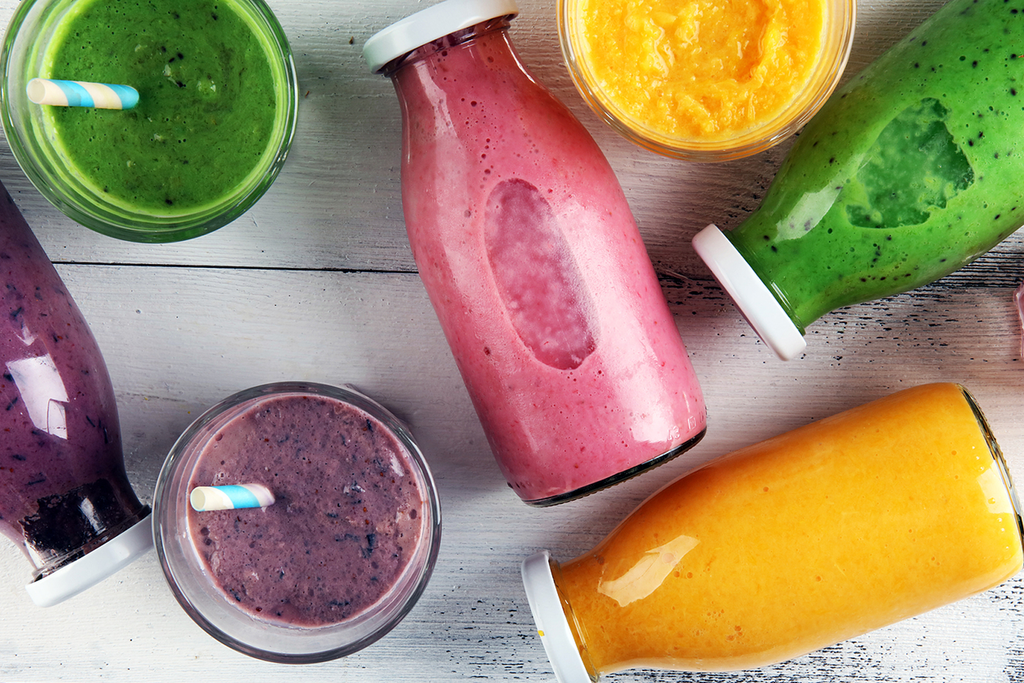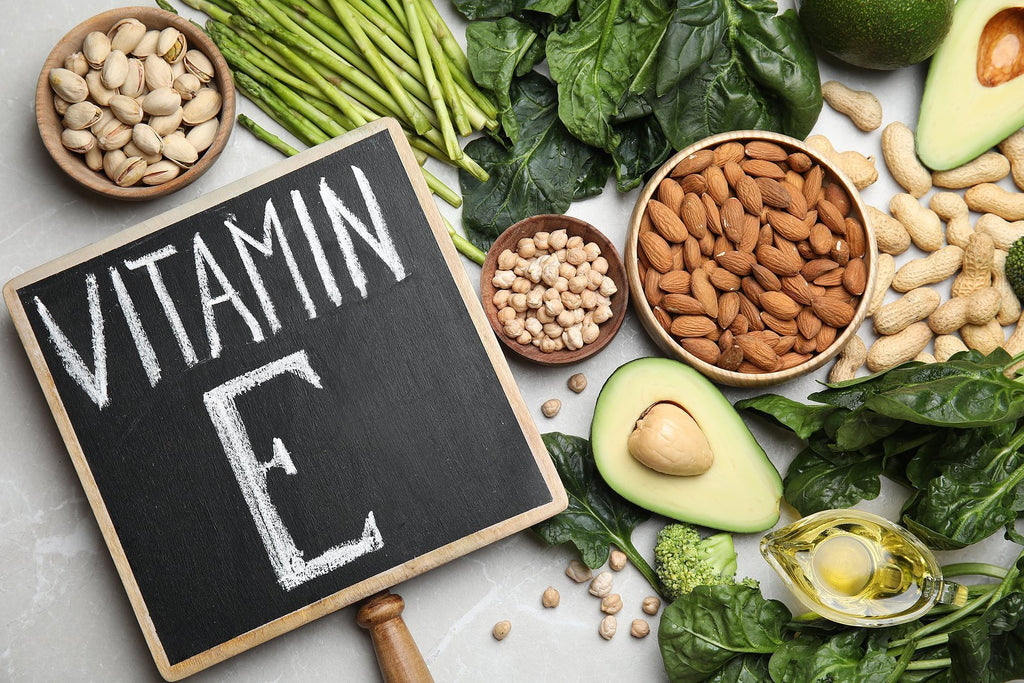Are Multivitamins Really Necessary?
Is it true or false that you can get all the nutrition you need in one multivitamin supplement? Do you really need to take a multivitamin? I’ll answer those questions for you in this blog.
Food First
The first thing to know is that it’s preferable to get your nutrition from actual food.
But how many people do you think are able to eat a diet that provides all the nutrition they need to function at a high level and maintain good health? Very few, obviously. Most people, due to what they eat and the nutrition they lack, are either chronically ill or are on the path to chronic illness. At best, they’re functioning at a lower level than they otherwise would if they consumed the proper nutrition daily.
I’m not exaggerating. But it’s so outside of what most people think is true that they usually fail to grasp what I just said. So I’ll say it again. Most people, due to the food that they are eating and the nutrition that they are not getting, are either chronically ill or on the path to chronic illness. A very small minority, only a few, are functioning okay, but still well below their potential.
Why is that?
Food Quality vs Quantity
It starts with the food supply. Issues like soil depletion, pesticide use, genetic modification of food, and the timing of harvesting all play roles in decreasing the quality of food. Conventional farming is not concerned with how much nutrition is provided in food. That should be the focus, but it’s not. Instead the emphasis is on pest control, quick growth, and low cost in perfecting cosmetic traits such as the color and the size of what they’re growing.
When you buy a tomato at the grocery store, you typically pay by weight. Does it matter that the larger, heavier tomato might have 30% less nutrition than the smaller, more nutrient-dense tomato? Well, it matters to you if you’re going to eat it, but it probably doesn’t matter to a farmer or the reseller, because they get paid by weight. What probably does matter to the farmer and reseller is whether or not the tomato looks like something a consumer would want to buy, as well as how long it will last on the shelf before going bad.
When you buy a tomato at the grocery store, you typically pay by weight. Does it matter that the larger, heavier tomato might have 30% less nutrition than the smaller, more nutrient-dense tomato? Well, it matters to you if you’re going to eat it, but it probably doesn’t matter to a farmer or the reseller, because they get paid by weight. What probably does matter to the farmer and reseller is whether or not the tomato looks like something a consumer would want to buy, as well as how long it will last on the shelf before going bad.
What you need to be concerned with is the amount of nutrition that you get from your food. That’s not what the food industry is concerned with, so you need to be concerned with that for yourself.
Extensive research points to the fact that the food of today does not compare with the food of 50 or 100 years ago, from the standpoint of nutrient density. That’s a problem you can’t escape. And that’s where dietary supplements come in – in particular a multivitamin as a foundation.
Food Variety
On top of the food quality problem, most people – maybe you – do not eat a wide enough variety of food to get all the nutrients their bodies really need. If you’re like most people, you routinely eat the same foods over and over, either out of habit or because of the food that you routinely have access to.
What Nutrition Do You Truly Need?
You need high quality sources of essential nutrients.
Some of the most common vitamin and mineral deficiencies include vitamins D, C, A, E, and B12. Most people are deficient in key minerals like magnesium, potassium, and iron. These are vital to health and maintaining normal function. Lacking enough of these essential nutrients leads to real problems. I could write books about it.
For instance, vitamin D helps you to absorb calcium. It’s a key vitamin for helping your body fight disease – not having a calcium in your body can set you up for some very serious diseases. Vitamins C and E are the leading antioxidants and you need both because they operate in different ways and often on different tissues within your body. You need Vitamin A for healthy vision and brain function, while B vitamins are essential for your nervous system to function properly. Magnesium is involved in hundreds of cellular reactions, potassium regulates fluid and muscle function, and if you don’t have enough iron then your body is going to end up being starved of oxygen.
All this leads up to the question…
“How Can I Get The Nutrition That My Body Really Needs?”
How are you going to get all this stuff if you’re eating the same foods over and over again and if the food quality has been damaged by conventional farming methods?
If your body isn’t getting the nutrition that it’s supposed to get through your food, you need to get it from another source. And a multivitamin is a good foundation to start with, even if you have a stellar diet. Remember, poor quality makes it very difficult to get all the nutrition from your food, so here are some tips for…
How to Choose a Multivitamin
You’ll find multis sold as powder, liquid, pills, capsules, and gummies. I tend to avoid gummies because they contain a lot of sugar – and you definitely don’t need more of that.
Get a multivitamin from a reputable brand that uses an independent lab to verify the quality and safety of its products.
A few words of caution here… Most brands do not send samples of each batch to an independent lab for testing. As for products manufactured in United States, no government agency is checking the supplements that are sold to consumers. The only time these agencies investigate is when consumers file complaints.
BodyManual’s Multi Passes More Than One Test
All the products that I have formulated for BodyManual are tested in two independent laboratories before being sold to the public. And I mean every batch that is produced. After we get the test results back and a product receives a 100% pass, then we release the batch to consumers. I don’t know if any other company can claim more extensive product testing than that.
If you’d like to see exactly what I’ve put in my MultiVitamin and Mineral product, check it out here. It is designed for both men and women and contains 31 nutrients to help ensure that you have the nutrition your body needs.
When you order my products, because you get them straight from the manufacturer, I don’t think you’ll find a better product at a cheaper price. If you take our multivitamin’s suggested dosage, it will cost about $0.45 a day. And if you’re a super health nut like me and you want to make sure that you have all the nutrition you need, you might double up on the dosage… and it will still cost only $1 a day!
A Short Recap…
- Should you take a multivitamin? The answer is yes. You should take a high quality multi.
- Can you get all the nutrition you need from a multivitamin? That answer is no. Getting all the nutrition that your body needs requires a healthy diet, a high-quality multi, and undoubtedly some other dietary supplements that have vitamins and minerals that can’t be packed into a multivitamin because of volume and cost.
"I switched to these after learning my usual "natural" brand sold to Nestle (NO THANK YOU). Although it was a pain to find a brand that was actually natural, I'm so glad I had to make the switch. The purity of these are a breath of fresh air and they make me feel great. I definitely recommend!"
Sarah Mann| ⭐️⭐️⭐️⭐️⭐️
Multivitamin Mineral
Sharing is Caring
Know Your Body - Know Your Health






